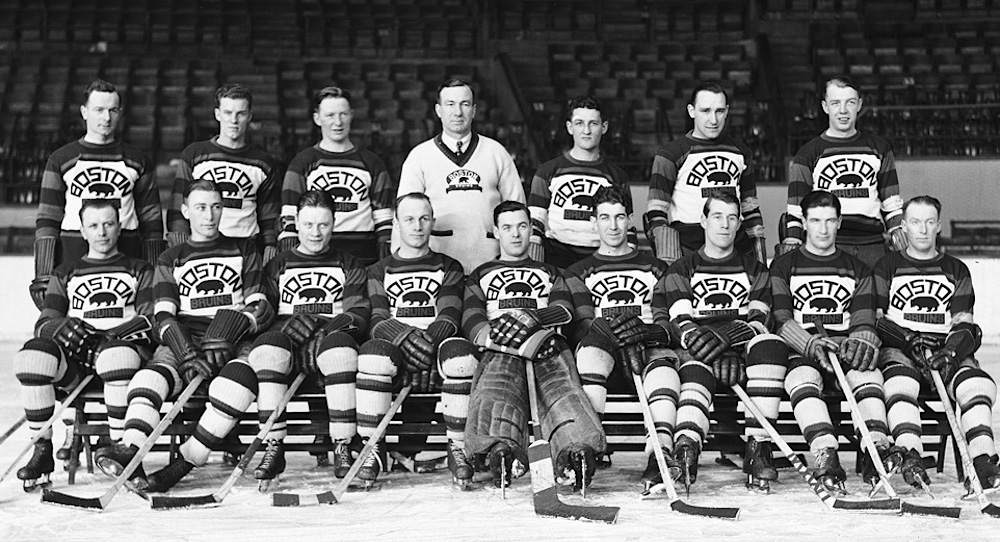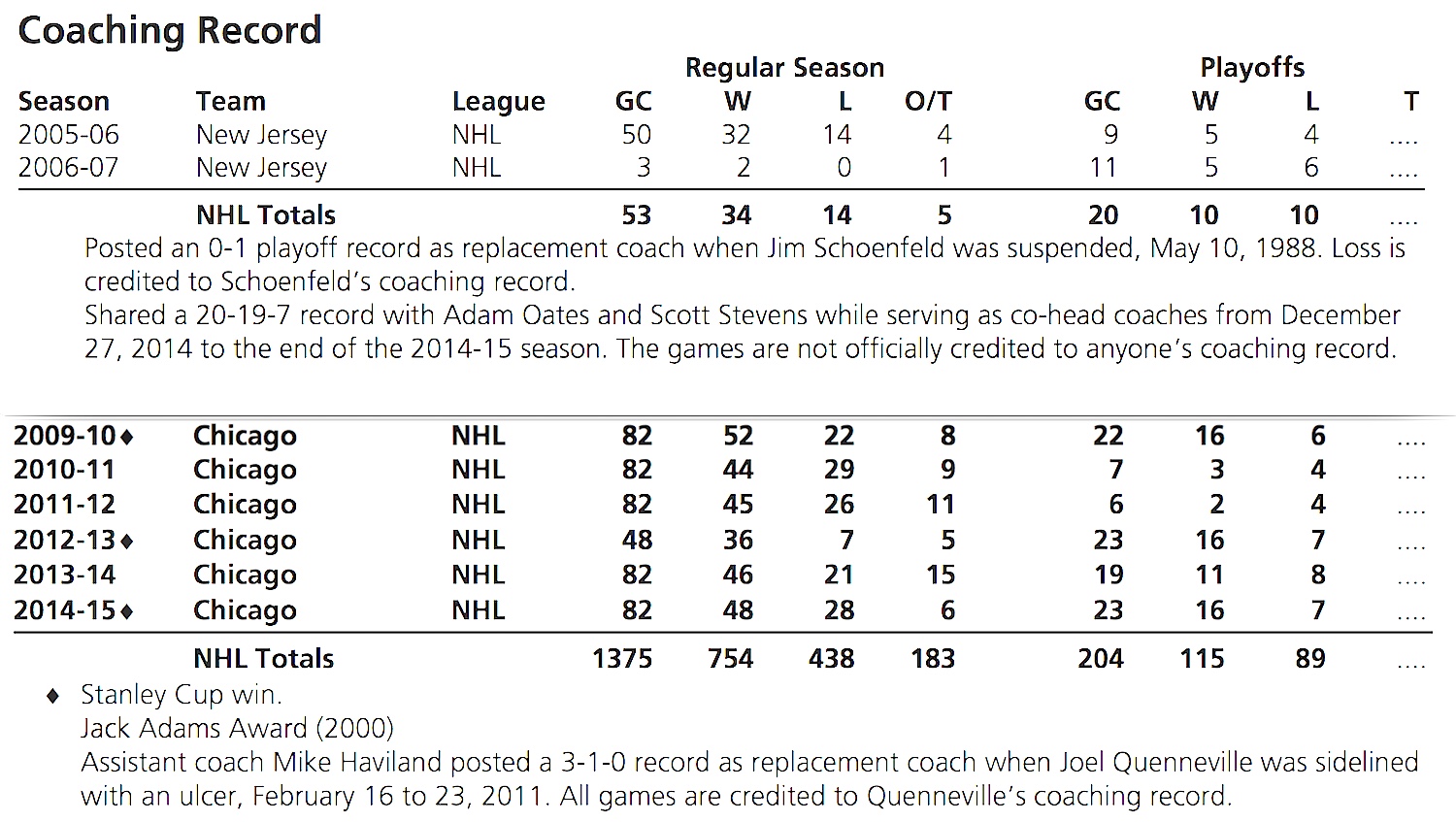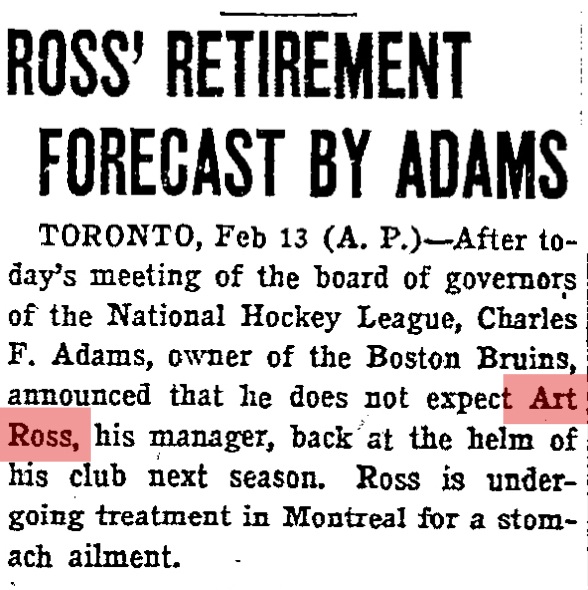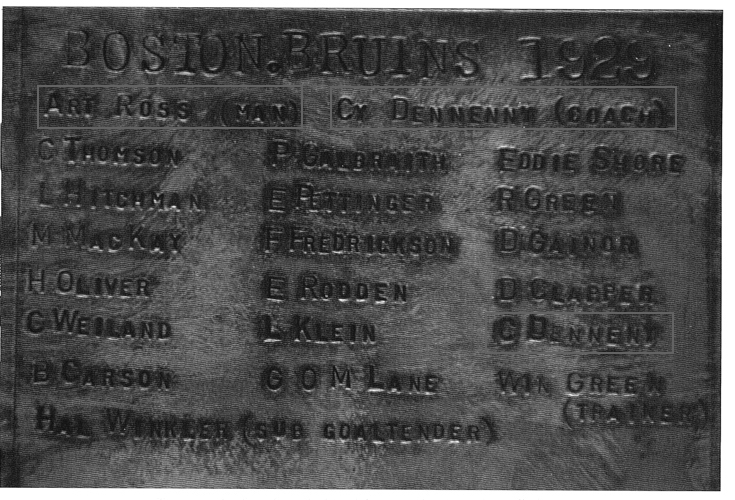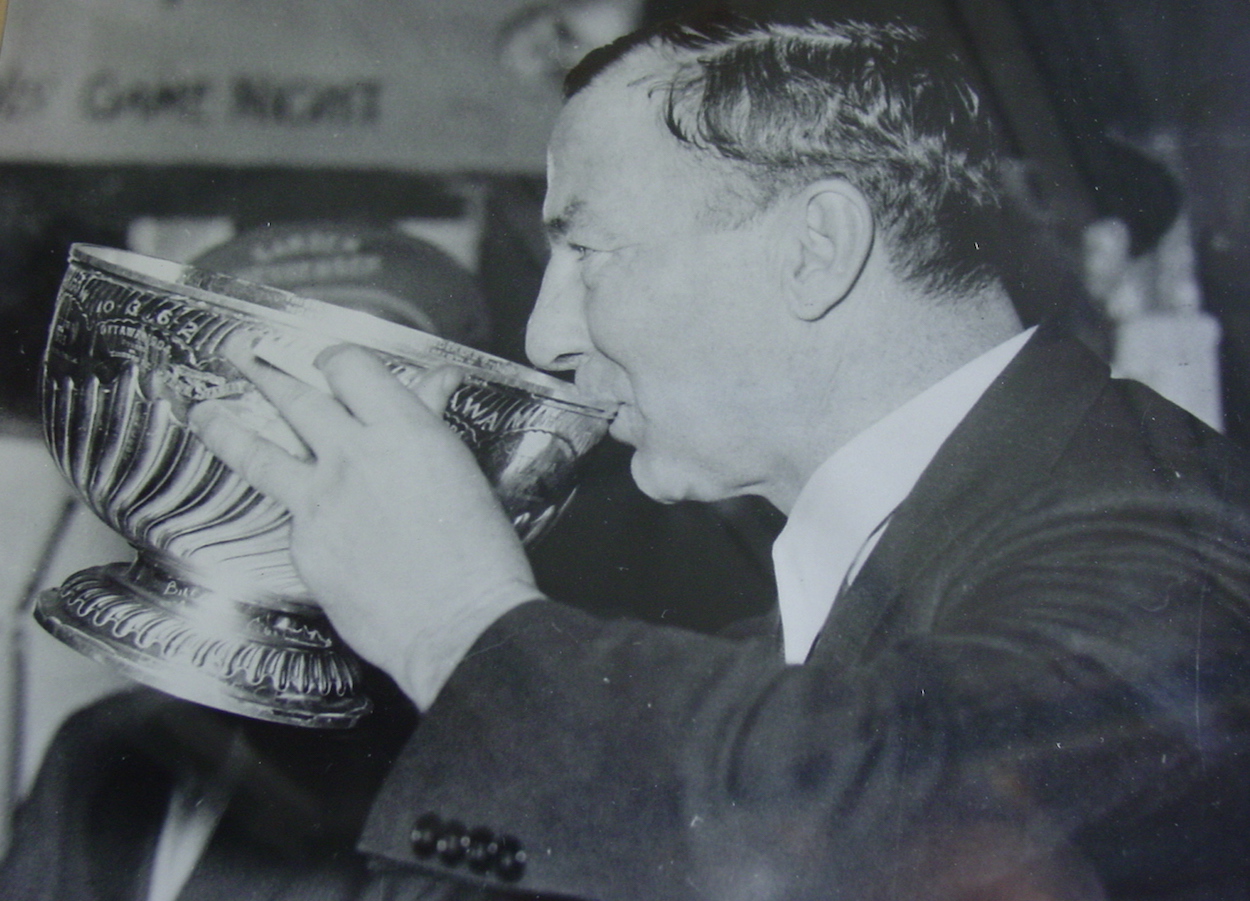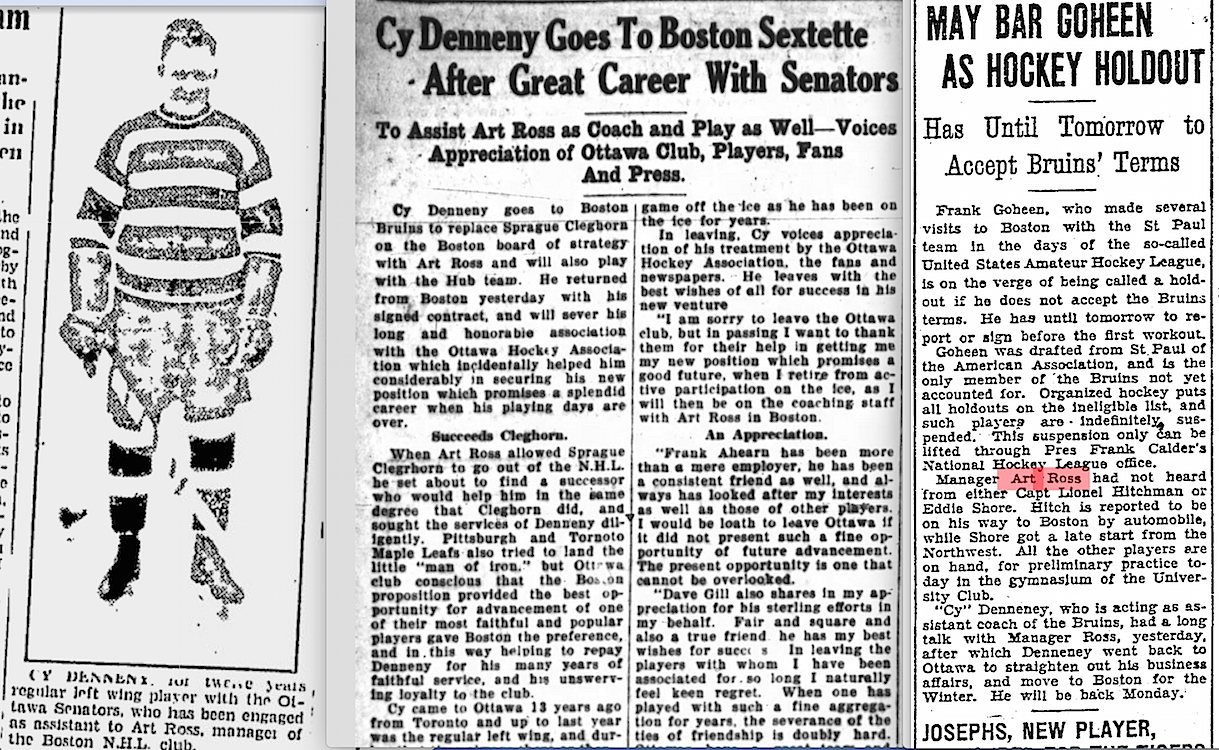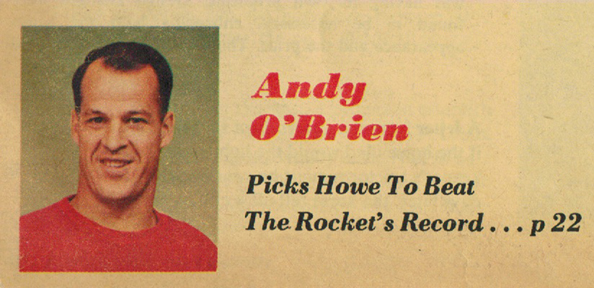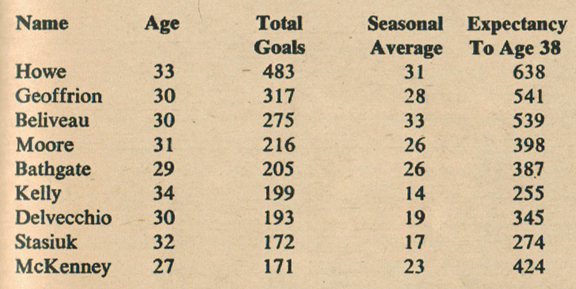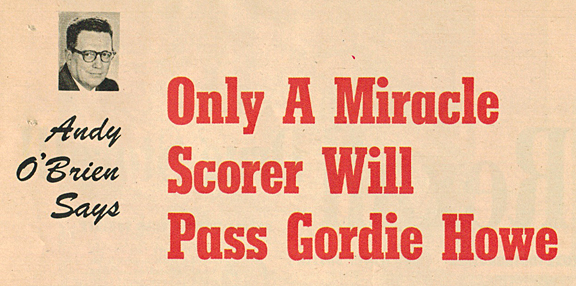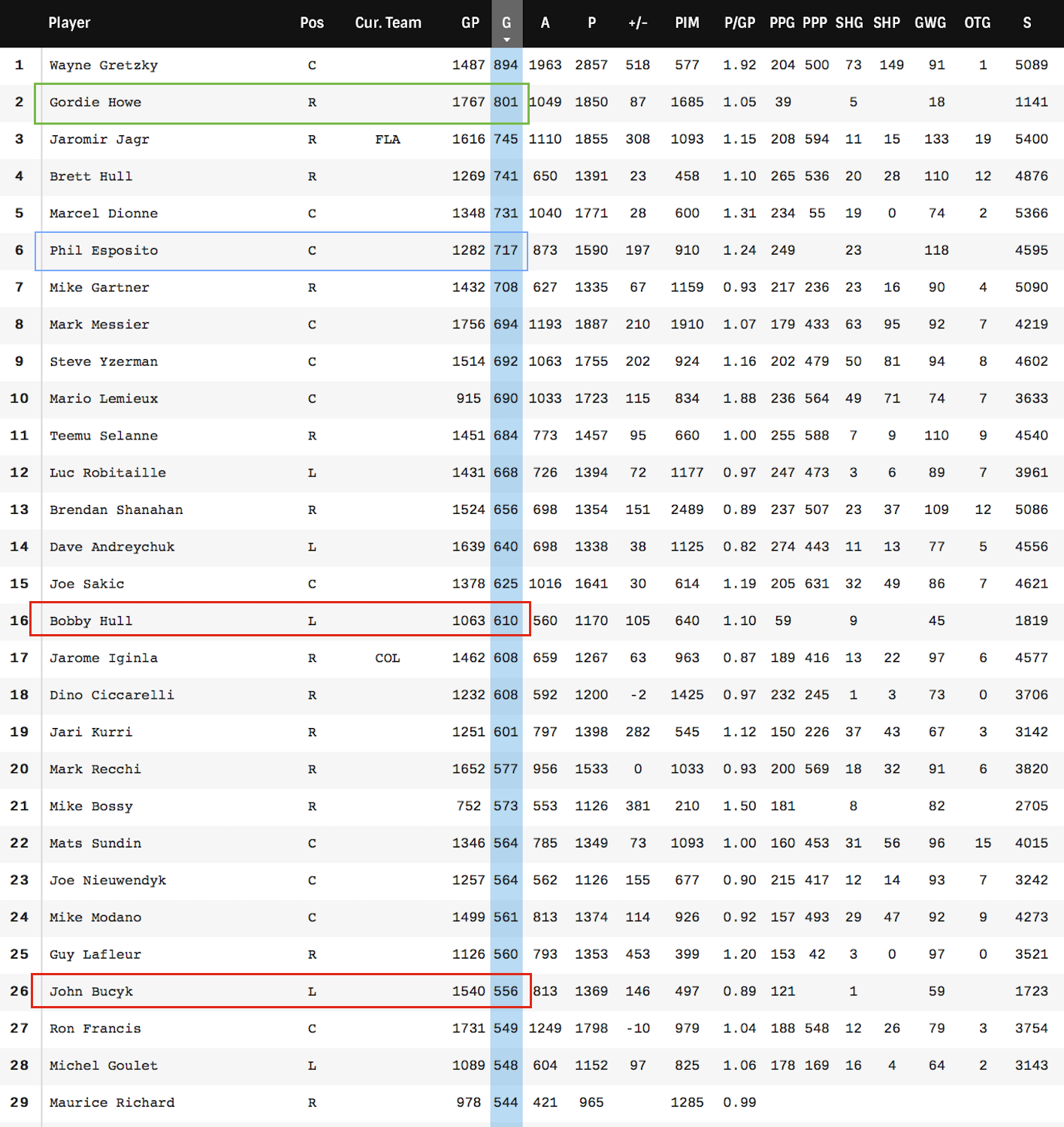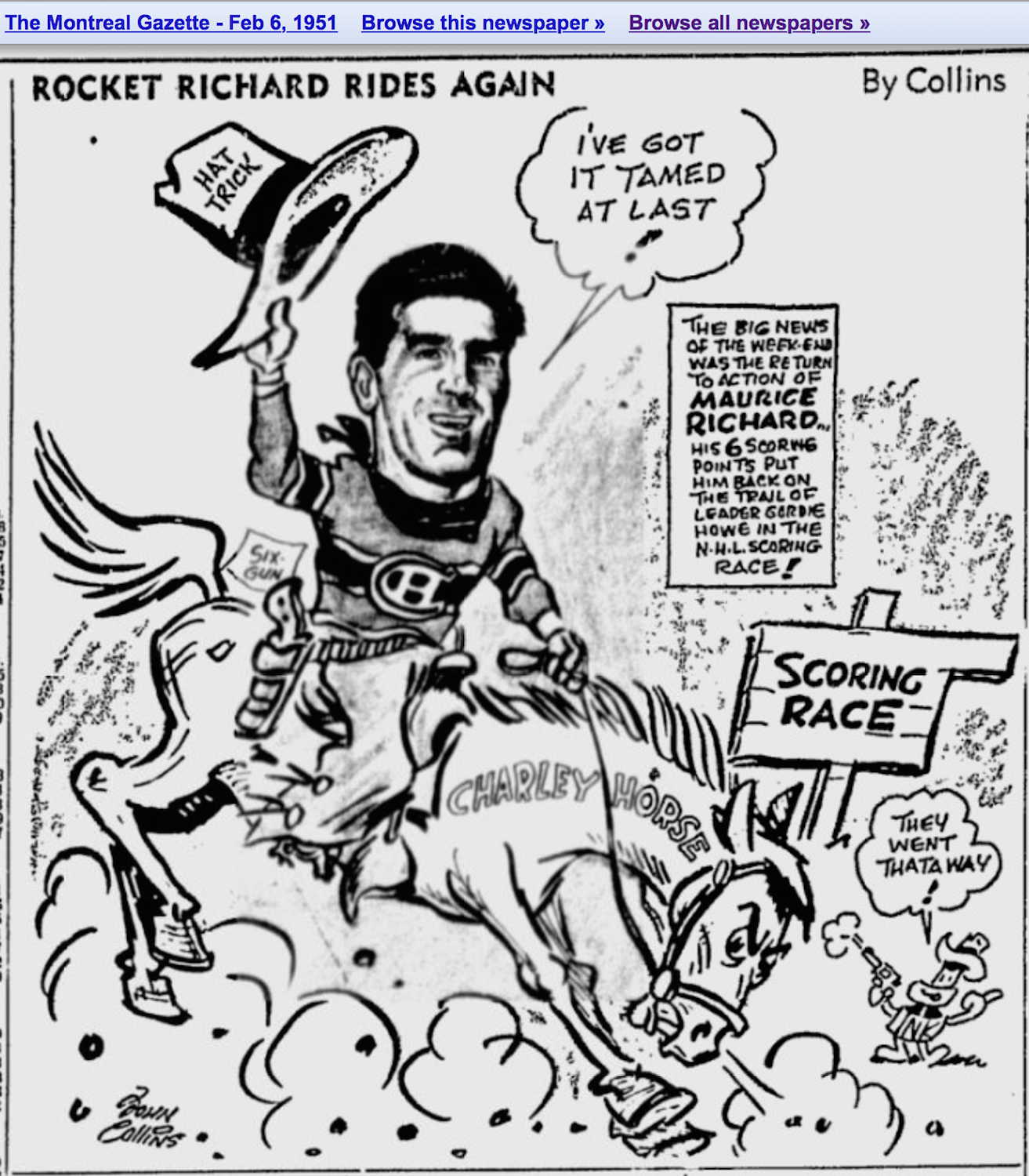As we near the end of a regular season that will see no Canadian teams in the playoffs for just the second time in NHL history (the first being 1969-70, when only two of 12 NHL teams were based in Canada — see today’s Toronto Star), it’s somewhat ironic that today marks the 100th anniversary of the first of a record 24 Stanley Cup victories for the Montreal Canadiens – against the first team to compete for the trophy from the United States.
On March 30, 1916, the Canadiens scored a 2-1 victory over the Portland Rosebuds on a late goal by Goldie Prodger in the fifth and final game of the best-of-five series between the champions of the National Hockey Association and the champs from the Pacific Coast Hockey Association.
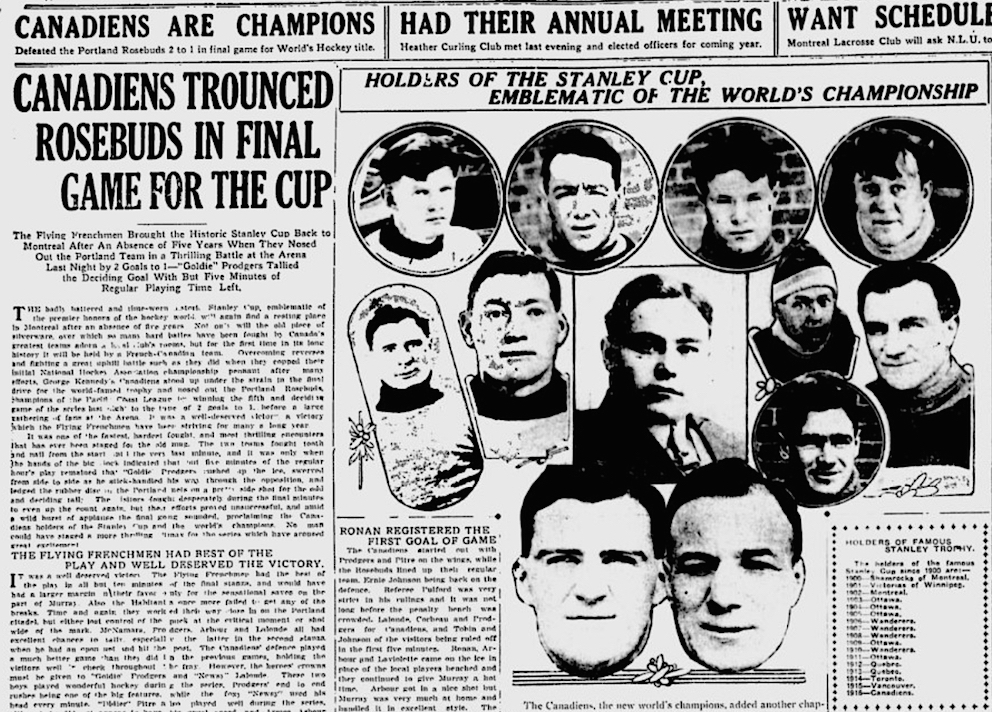
The Montreal Daily Mail, March 31, 1916. Page 8.
It has long been said that the wife of Canadiens goaltending legend Georges Vezina gave birth to a son that same night, whom the Vezinas named Marcel Stanley in honour of the Cup. In truth, the boy was born the following day, March 31, 1916, and was formally christened Joseph Louis Marcel Vezina – although it does appear to be true that the family called him Marcel Stanley.
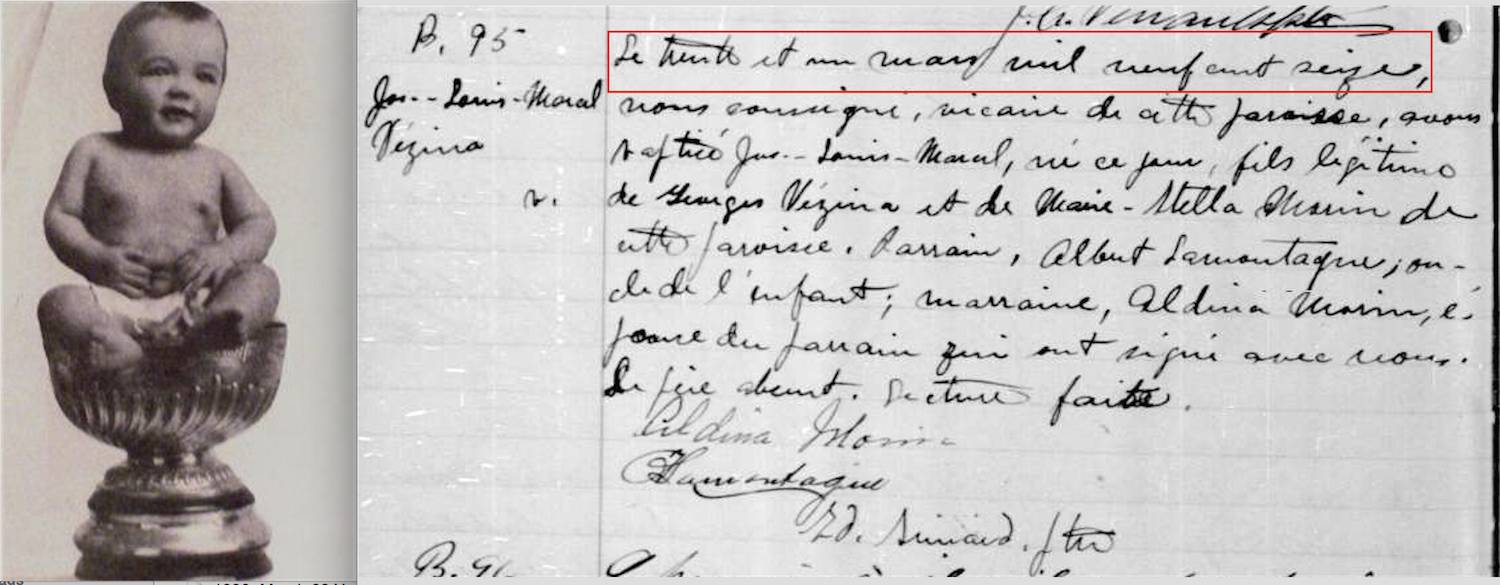
The birth record for Joseph Louis Marcel “Stanley” Vezina states in French
that he was born on le trente et un mars mil neuf cent seize.
It won’t happen this year, but years ending in ‘6’ have traditionally been good ones for the Canadiens and for other teams from Montreal. Here’s a quick look at the last 120 years of Stanley Cup competition…
1896: I’ve often argued that this is the year that made the Stanley Cup. Until 1896, the trophy was better known for off-ice squabbles than anything else. But the interest was clearly in what happened on the ice when the Winnipeg Victorias defeated the Montreal Victorias on February 14, followed by the Montreal team winning back the trophy in a rematch on December 30. This made the Stanley Cup the national institution it’s been ever since.
1906: The Montreal Wanderers ended the Stanley Cup reign of the Ottawa “Silver Seven” … but just barely. After winning game one 9-1, the Wanderers gave back their eight-goal lead in game two before Lester Patrick scored twice late in the game to give Montreal a 12-10 win in the total-goals series.
1926: In just their second year in the NHL, the Montreal Maroons won the league title behind the scoring exploits of Nels Stewart and the goaltending of Clint Benedict. The Maroons then defeated the defending champion Victoria Cougars of the Western Hockey League to win the Stanley Cup. Victoria is the last non-NHL team to have played for the Stanley Cup.
1936: The Detroit Red Wings became the last of the so-called “Original Six” NHL teams to win the Stanley Cup. “The boys were good enough to win this year,” said coach and general manager Jack Adams, “and they’ll be better next season.” Adams was right, as the Red Wings won again in 1937.
1946: Having won it in 1944 to end a 13-year drought dating back to 1931 (a time known to fans of the team as The Grande Noirceur — The Great Darkness, which also refers to the Quebec government policies of 1936 to 1959), the Canadiens won the Stanley Cup for the second time in three years on Elmer Lach’s overtime goal to beat the Bruins in game five of the Final.
1956: After losing to Detroit two years in a row, the Canadiens downed the Red Wings in five games to win the Stanley Cup; the first of a record five straight championships through 1960. It’s often said that the disappointing end of the 1954-55 season, when the Richard Riot saw Maurice Richard suspended for the entire playoffs, helped to launch this great dynasty.
1966: The Canadiens again, defeating the Red Wings in six games to win their second Stanley Cup in a row. Henri Richard scored the winner in overtime after being hauled to the ice and sliding into the net with the puck underneath him. Detroit goalie Roger Crozier insisted that Richard had swiped the puck in illegally with his glove.
1976: “There was a great sense of quest that season,” writes Ken Dryden in his hockey classic The Game. The Canadiens were determined to end the Philadelphia Flyers’ two-year championship run of goon hockey, and swept them in four straight in the Stanley Cup Final. It was the first of four straight championships for Montreal.
1986: In one of the most surprising championships of their record 24, a Montreal Canadiens team featuring all sort of rookies – including Conn Smythe Trophy winner Patrick Roy – defeated the Calgary Flames in five games. The Flames were the first Calgary team to play for the Stanley Cup since the Calgary Tigers of the Western Canada Hockey League, who were defeated by the Canadiens back in 1924.
1996: After being traded by the Canadiens to the Avalanche, Patrick Roy helped Colorado win the Stanley Cup in its first year in Denver after 16 seasons as the Quebec Nordiques. And consider this unusual fact: Colorado’s win over Florida that year marks the ONLY TIME in NHL history that both teams in the Final had never played for the Stanley Cup before.
2006: The Edmonton Oilers barely reached the playoffs this season, but then went all the way to the Final and pushed Carolina to seven games before the Hurricanes won the Stanley Cup. Another odd fact: When neither team made the playoffs in 2007, it marked the first time in NHL history that both Finalists failed to qualify for the playoffs the following year.

